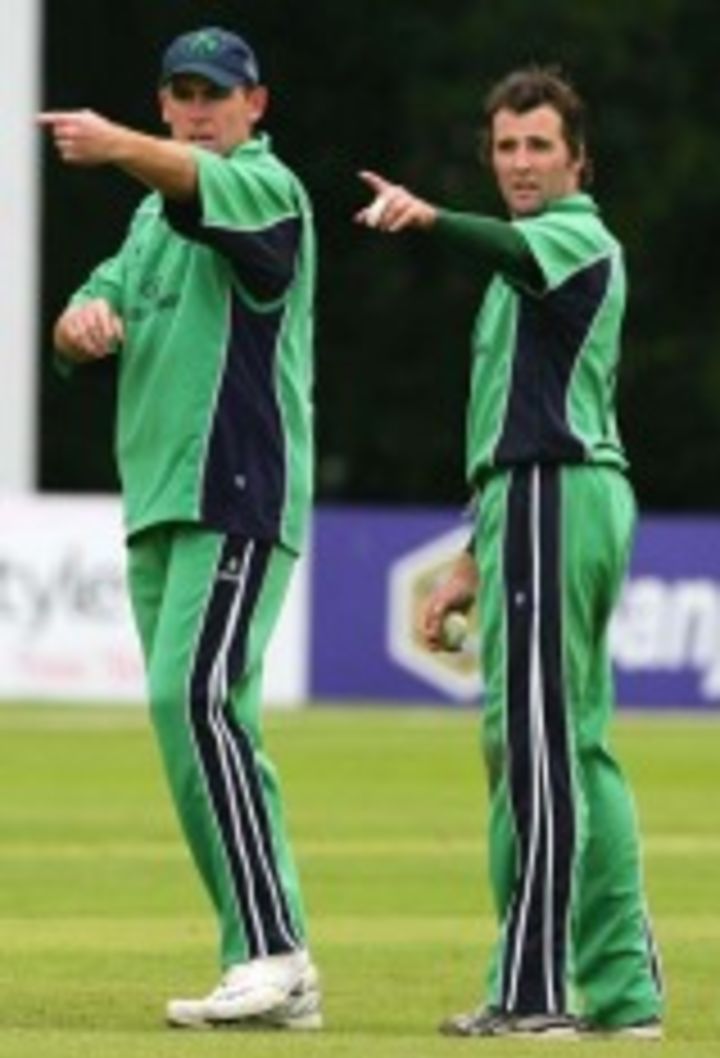The most over-rated sin
If you went to a day’s play in a Test that featured 320 runs, eight wickets and a couple of dazzling catches, would it bother you that “only” 80 overs were served up for your delectation

Cricket loves numbers in much the same way as plants adore sunshine. Without the one, the other cannot exist. But while most statistics reveal something of value, the one that arouses the greatest controversy, namely over-rates, strikes me as largely irrelevant.
While commentating on yesterday’s play at Trent Bridge, Nasser Hussain and Mike Atherton both put forward the case for irrelevance, and not merely to justify their own captaincy tactics. Hussain explained India’s sluggish rate by listing all the causes of delay, from the need to sawdust the run-ups and footholds to the remarkably greater incidence of left-handed batsmen in the modern game (up from 17% in the Fifties to 30%) and the consequent impact on field adjustments. Atherton simply declared that Test cricket was more exciting than it had ever been, so why complain about something so pitifully petty?
Behind the objections lies what many regard as a sinister subtext. Suggesting that the West Indies of the 1980s were alone in their purported crimes against the maintenance of an acceptable tempo will always attract charges of racial bias, simply because they were so far from alone.
In India during England’s 1981-82 tour, which produced quite possibly the least thrilling Test series of all time, the hourly average was 13 overs. Sunil Gavaskar admitted that he deliberately slowed the rate on the first day in Delhi - where India’s rate of 12.79 was curiously tardy given that they had but one bowler, Kapil Dev, who propelled the ball at above medium-pace – in order to limit his side’s batting time. At one juncture, Gavaskar oversaw a rate of barely nine an hour.
Peter Moores felt obliged to justify England’s rate after last week’s Lord’s Test, insisting it takes time to get the fields right and that any resulting deceleration was a small price to pay. Len Hutton offered a similar defence after the 1954-55 Ashes series, during which, attested John Woodcock, England’s rate was “awful”. The captain believed his young fast bowlers “need my help in placing the field”.
Fast-forward a decade, to the Caribbean in 1968. With rain deducting one hour and 40 minutes’ play, four of the five Tests were drawn, England won in Trinidad with minutes to spare and the final chapter lasted until the sixth evening. The labours per Test were as follows: 425.5 overs, 391.2, 377, 391.2 and 500.2. In other words, roughly 80 per day. According to Brian Close, the man who displaced him as England captain, Colin Cowdrey, trimmed the rate “so ostentatiously that it is the only time I have ever seen Gary Sobers really angry”.
Indeed, it has been claimed that Sobers’s surprising – and fatal - declaration in Port-of-Spain was a statement against negative play, incited by the West Indies skipper’s dismay at Cowdrey’s tactics. It also bears pointing out that Close was sacked by the selectors precisely because he was alleged to have slowed Yorkshire’s over-rate against Warwickshire, though this was almost certainly a pretext for getting shot of the lower-class Yorkshireman in favour of the upper-crust Kentishman.
Which is why Christopher Martin-Jenkins’s recent lament about over-rates during the annual Cowdrey Lecture at Lord’s struck such a jarringly ironic chord. My companion that night could barely contain his spluttering. Did anyone really give a damn, he whispered angrily, about over-rates?
I doubt many do. If you went to a day’s play in a Test that featured 320 runs, eight wickets and a couple of dazzling catches, would it bother you that “only” 80 overs were served up for your delectation? I seriously doubt your eyes would alight on that area of the scoreboard overmuch.
So long as nobody is taking the pee, does it really matter whether a side sends down 15 overs an hour (a not unreasonable expectation) or 14? So long as spectators aren’t cheated of their ration and time is made up, the prolonging of the drama is surely to be welcomed.
Besides, as my Lord’s companion remarked, extending play until 7.30 in the evening in England makes sense anyway, given that trying to get out of a city centre any earlier can be a nightmare of Elm Street proportions.
Rob Steen is a sportswriter and senior lecturer in sports journalism at the University of Brighton
Read in App
Elevate your reading experience on ESPNcricinfo App.